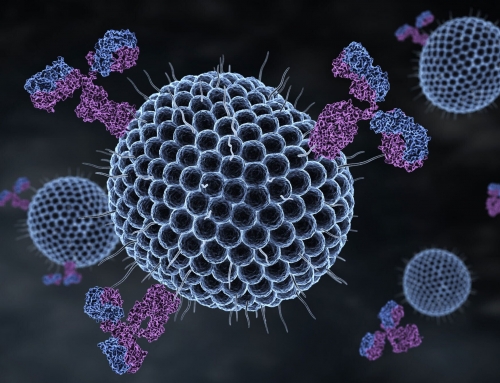Emerging technologies offer exciting opportunities for the development of novel therapies.
by Susan Thompson, Technical Director at VxP Biologics
Although commercial sales are certainly a desirable target for pharmaceutical development, they’re far from the only reason to invest in new products. In a number of fields, pharma developers are partnering with contract manufacturing organizations (CMOs) to develop products designed specifically for clinical-stage trials.
Clinical stage products can become profitable intellectual property, even as they advance the pharmaceutical field and provide new opportunities for innovation. Here are three of today’s most promising product categories for clinical stage pharmaceutical development.
Monoclonal antibodies are one class o viable clinical-stage products.

Emerging technologies offer exciting opportunities for the development of novel therapies.
Also known as mAbs or moAbs, monoclonal antibodies are generated in clones of a cell, often from a human or rodent. They bind specifically to epitopes of the same antibody from which they’re generated. This property enables them to bind to specific antigens in a patient’s body, inducing or reducing an autoimmune response in target cells.
For example, mAbs are used in a wide range of cancer treatments, binding to antigens present in cancerous cells, and triggering the immune system to attack those cells. In a reverse scenario, mAbs are used to treat autoimmune diseases like rheumatoid arthritis, ulcerative colitis and Crohn’s disease, by binding to receptor sites that suppress autoimmune responses. In a similar way, mAbs can be used to prevent the rejection of transplanted organs. Beyond this, mAbs can also be engineered to deliver a specific cytokine, radioisotope or toxin to specific cells, or even to activate specific receptors on a cell membrane.
The range of mAbs used in clinical research and therapy has multiplied sharply in recent years. Advancing technologies such as polymerase chain reaction (PCR) toolkits enable engineers to design mAbs for specific targets, then grow them in the bodies of mammals, birds or other experimental animals. The field promises many further opportunities in the near future.
Recombinant products also represent an emerging clinical-stage field.
The use of hormones and other proteins as pharmaceutical agents dates back decades, to the discovery of insulin as a treatment for diabetes. The availability of these proteins has often been limited, however, by the high costs of producing them in the lab; as well as the costly procedures necessary to store and transport them.
Today, the developing field of recombinant DNA (rDNA) technology has breathed new life into the pharmaceutical protein market. By manipulating individual genes and sets of genes in a host organism, engineers can grow proteins designed for a wide variety of uses, including direct mimicry of existing (but costly) therapies.
More than 400 proteins are now actively produced via rDNA technology, and a growing number are gaining approval for medical use in humans. The potential of rDNA engineering reaches far beyond these therapies, however. As toolkits such as PCR continue to become more precise, a greater variety of rDNA treatments can be expected to enter clinical trials over the coming years.
The Vero cell platform enables rapid development of clinical-stage viral vaccines.

The Vero cell platform uses animal model systems and gene profiling to reduce the time necessary to develop an effective vaccine.
Many viruses currently pose major health threats to human populations worldwide. In addition to infamous viruses like Zika, West Nile, Chikungunya and SARS, pandemic influenza and other emerging viral diseases are also harming significant numbers of people every year. To counteract these threats, safe and effective vaccines must be developed and deployed at a rapid pace.
Conventional vaccine programs, however, often require eight to 10 years of laboratory development in order to bring a new drug to market. This is obviously out of the acceptable time range to contain an emerging epidemic. Thus, the Vero cell development and industrial scale manufacturing platform was established to enable the rapid development of a many inactivated whole virus vaccines targeted at emerging viral diseases.
The platform uses animal model systems and gene profiling to reduce the time necessary to develop an effective vaccine. This approach has already proven its effectiveness in developing vaccines for the treatment of several well-known viral diseases, and is likely to prove equally effective in the rapid development of vaccines for Zika and other viral epidemics.
All these areas of clinical stage development offer major opportunities for pharmaceutical developers and CMOs. As these technologies continue to advance, a wide range of novel therapies will provide further openings for clinical research and innovation.




